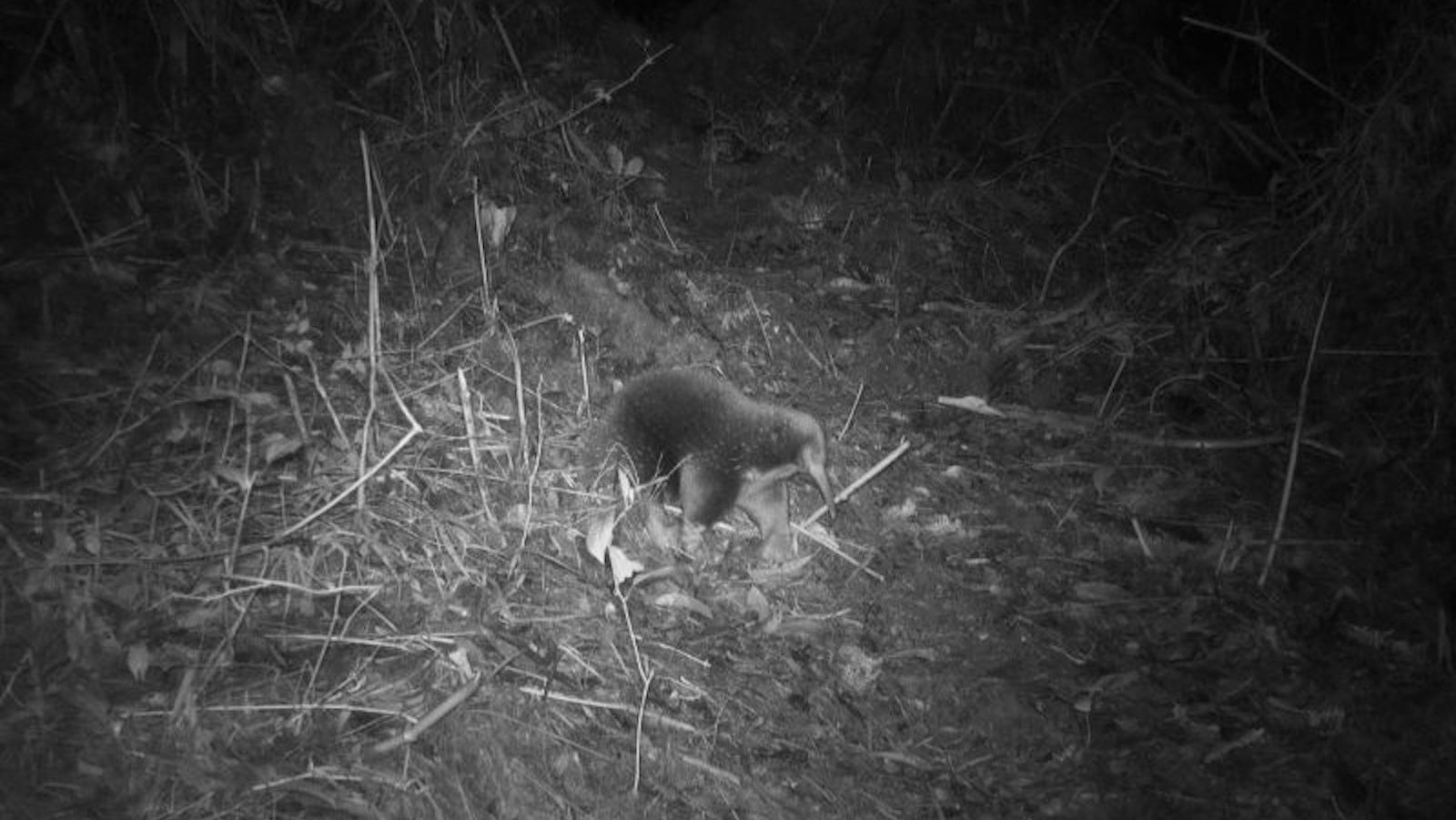(Reuters) — Scientists have rediscovered a long-lost species of mammal in Indonesia’s Cyclops Mountains, with the vertebrae of a porcupine, an ant’s nose and the feet of a mole, said to be more than 60 years since it was last recorded.
Attenborough’s long-beaked echidna, named after British naturalist David Attenborough, was first photographed by a trail camera on the final day of a four-week expedition led by Oxford University scientists.
After descending from the mountains at the end of the trip, biologist James Kempton found images of the tiny creature walking along the forest floor on the last memory card recovered from more than 80 remote cameras.
“There was great joy and relief to spend so much time in the field without any reward until the last day,” he says, describing the moment he first saw the images with his collaborators from the Indonesian security team. Yapenda.
“I yelled to my colleagues who were there … ‘We found him, we found him.’ I ran from my desk to the living room and hugged the guys.”
Echidnas share their name with the half-woman, half-serpent Greek mythological creature, and the team described them as living in shy nocturnal burrows that are difficult to spot.
“The reason it looks so different from other mammals is because it belongs to the monotremes, an egg-laying group that split from the rest of the mammal tree about 200 million years ago,” Kempton explains.
The species has only been scientifically recorded once, in 1961 by a Dutch botanist. Another species of echidna occurs in Australia and the lowlands of New Guinea.
During their journey, Kempton’s team survived an earthquake, malaria, and a leech caught in the eyeball. They worked with the local Yongsu Safari Village to travel and explore the remote terrain of northeastern Papua.
The echidna is rooted in local culture, including a tradition of resolving conflicts by sending one disputing party into the forest in search of the mammal, and another out to sea in search of a needlefish, Yongsu safari elders say.
Both species were considered so difficult to find that it took decades or even a generation to find them, but once found, the animals signaled the end of conflict and a return to harmonious relationships.


:quality(85)/cloudfront-us-east-1.images.arcpublishing.com/infobae/BH6NLAQGXJGADFWTENBUV7Z7RQ.jpg)
:quality(85)/cloudfront-us-east-1.images.arcpublishing.com/infobae/3GK63ATFOMFAYNUAQKUL4WUJFM.jpg)

:quality(85)/cloudfront-us-east-1.images.arcpublishing.com/infobae/SJ35ZLSJ5NB4BWVRJPSK74P7AQ.jpg)